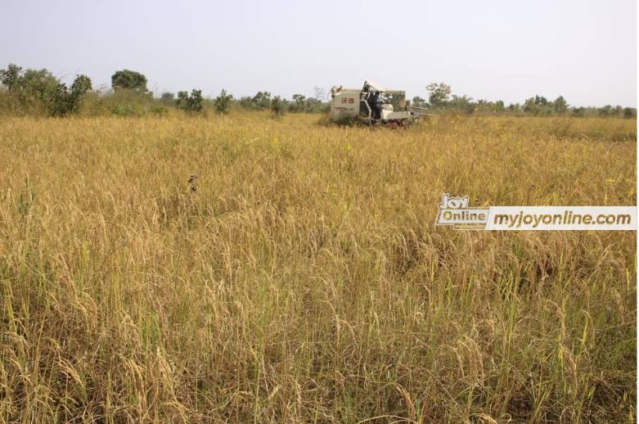A research by the Environmental Science Department of the Kwame Nkrumah University of Science and Technology has found secured land tenure system arrangement to be crucial in farmers’ adoption of climate-Smart Agriculture.
The research sought to find the key enablers and barriers confronting farming households in their attempt to implement such practices.
The researchers collected data involving 1,061 households from October 2020 to October 2021.
“We collected data using a mixed method approach in October to December 2020, February to March, and August to October 2021.
“The households were in nine communities selected from the Kintampo South District, Savelugu District and the Lambussie-Karni district,” lead researcher, Prof. Phillip Antwi-Agyei stated.
The scientists found that beyond secured land tenure system arrangement, understanding the effects of climate change, access to sustainable agricultural technologies and access to financial resources to implement climate-smart agricultural practices were key facilitators.
Others were; access to weather and climate information, support from social group organizations, support from local government authorities, support from traditional leaders and access to farmer-based insurance.
These findings were made known at a workshop on climate-smart Agriculture and climate information for resilient food systems in Kumasi.
The workshop aimed at assessing how climate-smart agriculture and climate information can be mainstreamed to strengthen the resilience of agricultural systems in Ghana.
Prof. Antwi-Agyei therefore called on policy makers and community leaders to address land tenure insecurity that tends to derail efforts by smallholder farmers in addressing climate risks.
“Customary landholding arrangements that tend to disadvantage certain socioeconomic groups in the implementation of adaptation practices such as agroforestry must be reviewed,” he said.
The research was supported by the Future Leaders-African Independent Research (FLAIR) Fellowship funded by the Royal Society, London and the University of York through the GCRF & Newton Fund Consolidation Award.
Latest Stories
-
Expansion Drive: Takoradi Technical University increases faculties
2 hours -
SHS heads demand payment of outstanding funds before reopening of schools
2 hours -
We thank God for the 2024 general elections – Akufo-Addo
3 hours -
Coconut Grove Beach Resort marks 30 years of excellence with memorable 9 lessons & carols service
3 hours -
WAFU B U-17 Girls’ Cup: Black Maidens beat Nigeria on penalties to win inaugral tournament
3 hours -
Real Madrid beat Sevilla to keep pressure on leaders Atletico
4 hours -
Liverpool put six past Spurs to go four points clear
5 hours -
Manchester United lose 3-0 at home to Bournemouth yet again
5 hours -
CHAN 2024Q: ‘It’s still an open game’ – Didi on Ghana’s draw with Nigeria
5 hours -
CHAN 2024Q: Ghana’s Black Galaxies held by Nigeria in first-leg tie
6 hours -
Dr Nduom hopeful defunct GN bank will be restored under Mahama administration
6 hours -
Bridget Bonnie celebrates NDC Victory, champions hope for women and youth
6 hours -
Shamima Muslim urges youth to lead Ghana’s renewal at 18Plus4NDC anniversary
7 hours -
Akufo-Addo condemns post-election violence, blames NDC
8 hours -
DAMC, Free Food Company, to distribute 10,000 packs of food to street kids
9 hours

